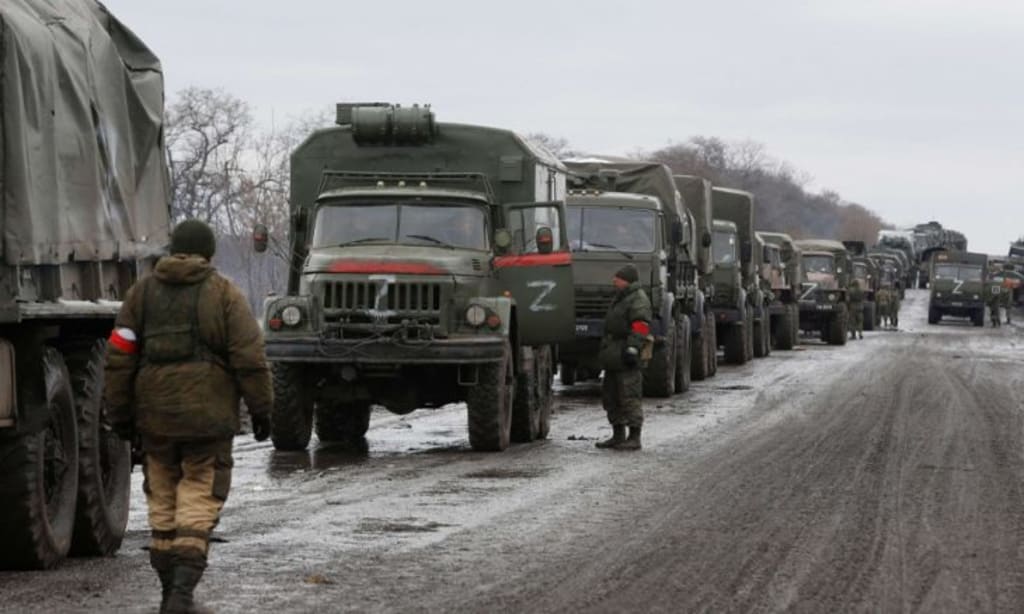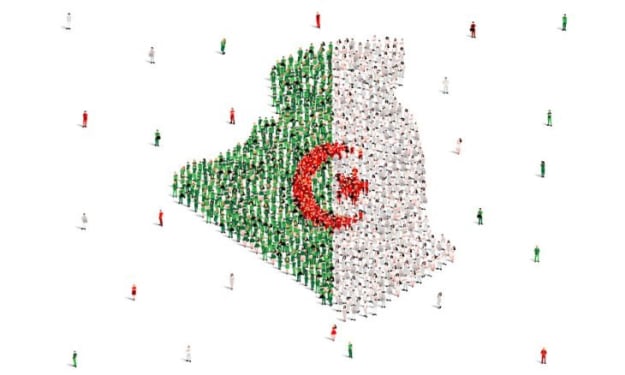
The Cold War between the Soviet Union (led by Russia) and the West Atlantic ended with the collapse of the former in the early nineties of the last century, and its disintegration into several countries in Eastern Europe and Central Asia. Today, the conflict between the two camps is renewed with a war hotter than the withering Cold War. The renewed war is no less fierce and complex than the previous one, which necessitates that other countries, perhaps the most prominent of which are West Asian countries, have positions and reactions related to their interests and influence, and their relations with neighboring countries, friendly or hostile.
The Arabs will not be a single front or bloc in the renewed conflict between Russia and the Atlantic West, because most of the Arab countries are friends or allies of the United States and its other Atlantic allies, and the remaining countries are not friends or reliable ally of Russia or are willing to disturb their relations with the countries of the West Atlantic. Accordingly, the parties to the axis of resistance and opposition, including a non-Arab state, Iran, seem to be interested alone in looking at benefiting from the renewed conflict between the two international camps.
Perhaps the first thing that the parties to the axis of resistance should do is to negotiate and understand among themselves what they can do about the renewed conflict in Europe, which suggests the birth of a new world order. In this context, five points of contact and conflict can be identified between the parties to the axis of resistance and Russia on the one hand, and the Atlantic West on the other. The first and most important point of contact and conflict is Israel. The Zionist entity is in a state of continuous war with Syria and the resistance movements in Palestine, Lebanon, Iraq and Yemen, and by extension with Iran, as it is a political ally and logistical supporter for it. Syria, which hosts a naval and air base for Russia, hastened to support its position on Ukraine and its NATO allies, as did the resistance movements. As for Iran, it supports Syria politically and militarily, which enabled it to support the resistance movements in its confrontation with the Zionist entity. Israel is currently in a very critical situation. It benefits from Russia’s “silence” over its aggressive air operations against Syria in the context of what it calls the “battle” between wars on the one hand, but on the other hand, it is keen to satisfy its incubator and main ally, the United States, so it was content at first by declaring the need to preserve the territorial integrity of Ukraine. , without condemning the attack of the Russian forces, but quickly developed its position under pressure from Washington, and announced its condemnation of the Russian attack on Ukraine. Russia may “understand” until Israel’s embarrassed position in taking a negative stance on it, but this understanding will not last for long, if Washington insists on Israel’s demand for a more negative and clear position than Moscow’s war in Ukraine. Lebanon Its foreign minister, Abdullah Abu Habib, donated a negative stance on the Russian forces' attack in Ukraine, which sparked condemnations of the Lebanese resistance and a wide segment of America's opponents, who are the permanent incubator and ally of the Zionist entity. Turkey seemed embarrassed as “Israel”, as it is a member of NATO and has friendship and cooperation with Ukraine, but it is also keen to strengthen its relationship with Russia to ensure its continued access to S-400 air defense missiles and tens of thousands of Russian tourists, who spend hundreds of thousands of dollars in its territory. . However, in the end, Ankara is forced to align itself with its Atlantic allies, and to take into account the countries of Eastern Europe and the Islamic countries of Central Asia, where Turkey has interests, influence, and segments of the population of Turanian (Turkish) origins.
By studying and extrapolating the dimensions and details of this panoramic picture, it is possible to anticipate the issues and opportunities that the parties to the axis of resistance can seize in the context of the renewed conflict between Russia and the Western Atlantic countries, as follows:
First, Syria, and to some extent Iraq, can benefit from the escalation of the conflict between Russia and America to get Moscow to put pressure on Turkey, in case the latter persists in supporting the Atlantic West against Russia in Ukraine. The purpose of the Russian pressure on Turkey is to end its occupation of large areas of northern and western Syria, as well as northwestern Iraq, using the S-400 missile cards and Russian tourists.
Second, the Lebanese resistance, through its political allies, can compel the government to confront US pressure on Lebanon to get it to accept a formula for demarcating the maritime borders between it and “Israel” that serves the latter, greedy for expanding the area of oil and gas exploration, to include a large area of the exclusive economic zone. The required confrontation is for Lebanon to begin exploration for oil and gas in the Lebanese blocks adjacent to the Israeli offshore oil installations, whose exploration and investment area is to be expanded. The two pillars of confrontation: (a) directing Russian companies to accept contracts with the Lebanese government to explore for oil and gas in the aforementioned sectors, and (b) declaring the leadership of the Lebanese resistance its willingness to destroy “Israel” offshore oil facilities, if it tries to prevent Lebanon from prospecting for oil. In its territorial waters, claiming that it is a disputed area. This threat is sufficient in itself to prevent “Israel” from attacking.
Third, persuading Turkey, Egypt, Syria and Lebanon to cooperate to explore for oil and gas in the eastern basin of the Mediterranean, so that they can collectively or individually establish an additional supply line (both sea and land) to transport various energy materials to Europe that is missing as a result of the war in Ukraine, or by American pressure on Europe to replace Russian gas with gas from America and its allies, albeit more expensive and more difficult to transport and market.
These three options seem difficult to implement in the short term, but planning for the possibility of turning the ordeal of the war in Ukraine into an opportunity to foresee and adopt new ways to invest the resources of the Arab Mashreq countries from oil and gas away from the pressures of America and its allies, seems realistic and worthy of risks.





Comments
There are no comments for this story
Be the first to respond and start the conversation.